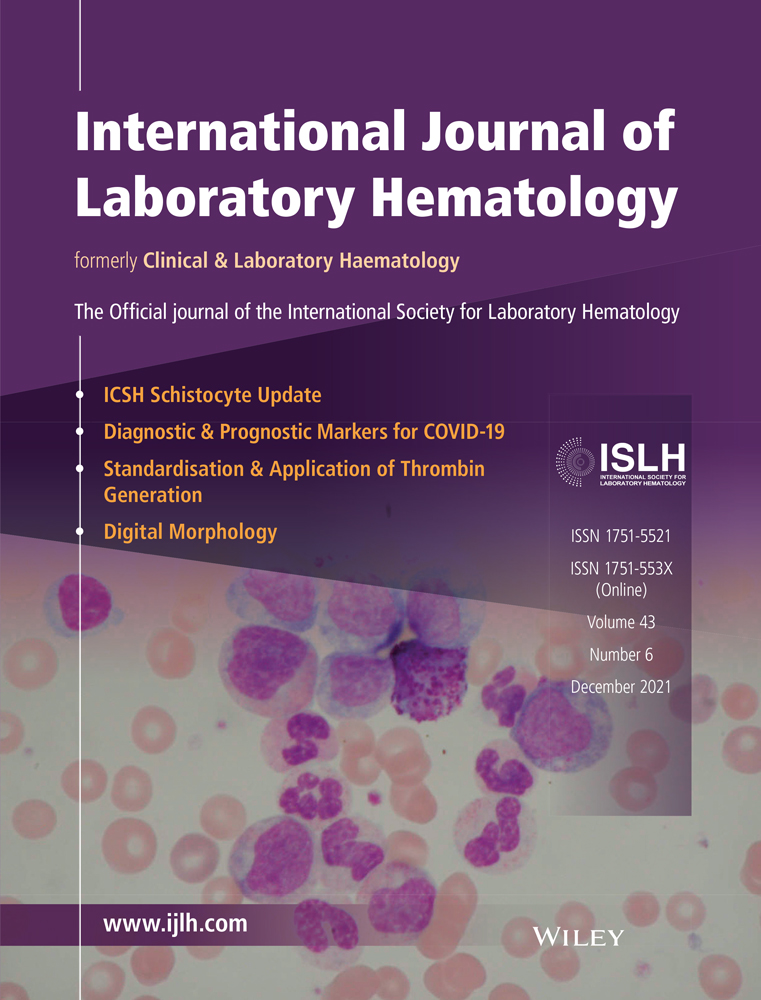The β-chain mutation p.Trp433Stop impairs fibrinogen secretion: A novel nonsense mutation associated with hypofibrinogenemia
Jie Yan and Yangyang Wu are contributed equal to this work and considered as co-first authors.
Abstract
Background
Congenital hypofibrinogenemia is characterized by proportional decreases in fibrinogen activity and immunoreactive fibrinogen levels. Here, we describe a new case with the bleeding risk identified in our hospital.
Methods
The proband was cut and bled for 3 h. Coagulation testing, gene analysis, thrombelastogram, sodium dodecyl sulfate polyacrylamide gel electrophoresis (SDS-PAGE), in vitro plasmid construction, and functional analyses were performed to explore the pathogenic mechanism.
Results
Coagulation testing of the male proband revealed low levels of fibrinogen detected by two methods (the Clauss method and the PT-derived method); his two sons had normal coagulation results. DNA sequencing of the proband revealed a heterozygous point mutation in exon 8 of the FGB gene causing Trp→Stop substitution and a polymorphic site (p.Leu92Phe). Human Trp433 was found to be highly conserved. SDS-PAGE showed that the fibrinogen level of the proband was markedly lower than that of healthy controls. Using high-performance liquid chromatography-mass spectrometry, a mutated Bβ chain was not detected in circulation. In vitro expression analyses indicated that the mutation affected the secretion of fibrinogen. The TEG results indicated that the proband had a prolonged K time, a lower CI value, and a lower angle value.
Conclusion
We report a new case with a novel nonsense mutation that resulted in hypofibrinogenemia. The results indicate that the nonsense mutation may cause misfolding of the D domain, which then affects the secretion of fibrinogen.
CONFLICT OF INTEREST
All the authors have no conflict of interest to declare.
Open Research
DATA AVAILABILITY STATEMENT
All data used during the study appear in the submitted article.




